1001 STORIES
1001 Stories is a series of interviews that share stories of incredible individuals from the MENA region. Through these stories, GRLبنت aims to further educate people around the globe about the lives and experiences of locals as they share their personal stories and perspectives on the social issues they face on a daily basis.
We are passionately working to amplify diverse perspectives with the hope that listening will lead to greater cross-cultural understanding and societal change. We aim to empower those whose voices are marginalized in order to deliver a more wholesome and complete narrative of an often misrepresented region.
We had the great pleasure of interviewing actresses Hayat Abu Samra & Sara Ghanma who are a part of the Netflix hit show, AlRawabi School for Girls. This Jordanian production consisted of a predominantly female cast along with female writers, producers, & director. The show became one of Netflix’s most watched series after it premiered in August 2021. It is truly revolutionary as it touches on topics that are not openly discussed within Jordanian society.
Watch Now!
Leen Hijazi is an up & coming Palestinian Jordanian singer that is currently based between Dubai & Amman. She shares her music covers on social media & released her first single called ‘Nseet’ (I Forget) in June 2021. We are excited to listen to her next single debut!
I first became interested in music when I was a little kid & found a passion for creating my own music when I was a teenager. But I never considered music as a professional career for myself until my 25th birthday, when my friends bought me a voucher to record at a professional studio. I was so nervous, but after the experience, I became so excited to create my own music. I released La Vie En Rose in English & Arabic followed by my original single, Nseet. The music video for Nseet was filmed in the Dead Sea mountains of my home country, Jordan.
I write my music based on the people I am surrounded by. For example, my upcoming single in October was inspired by the experiences of my best friend. I always try to write about something relevant to me or scenarios that are relevant to Arab culture/society, such as the Palestinian cause. This year, I tried to shed light on what has been happening in Palestine through my music on social media & TikTok in English & Arabic to reach a larger audience.
When I am creating new music, I make sure to sing in Arabic because I want to do something with my own language, since Arabic is beautifully powerful. But I would describe my music as non-traditional Arabic music since it’s mixed with Western influences.
Read more
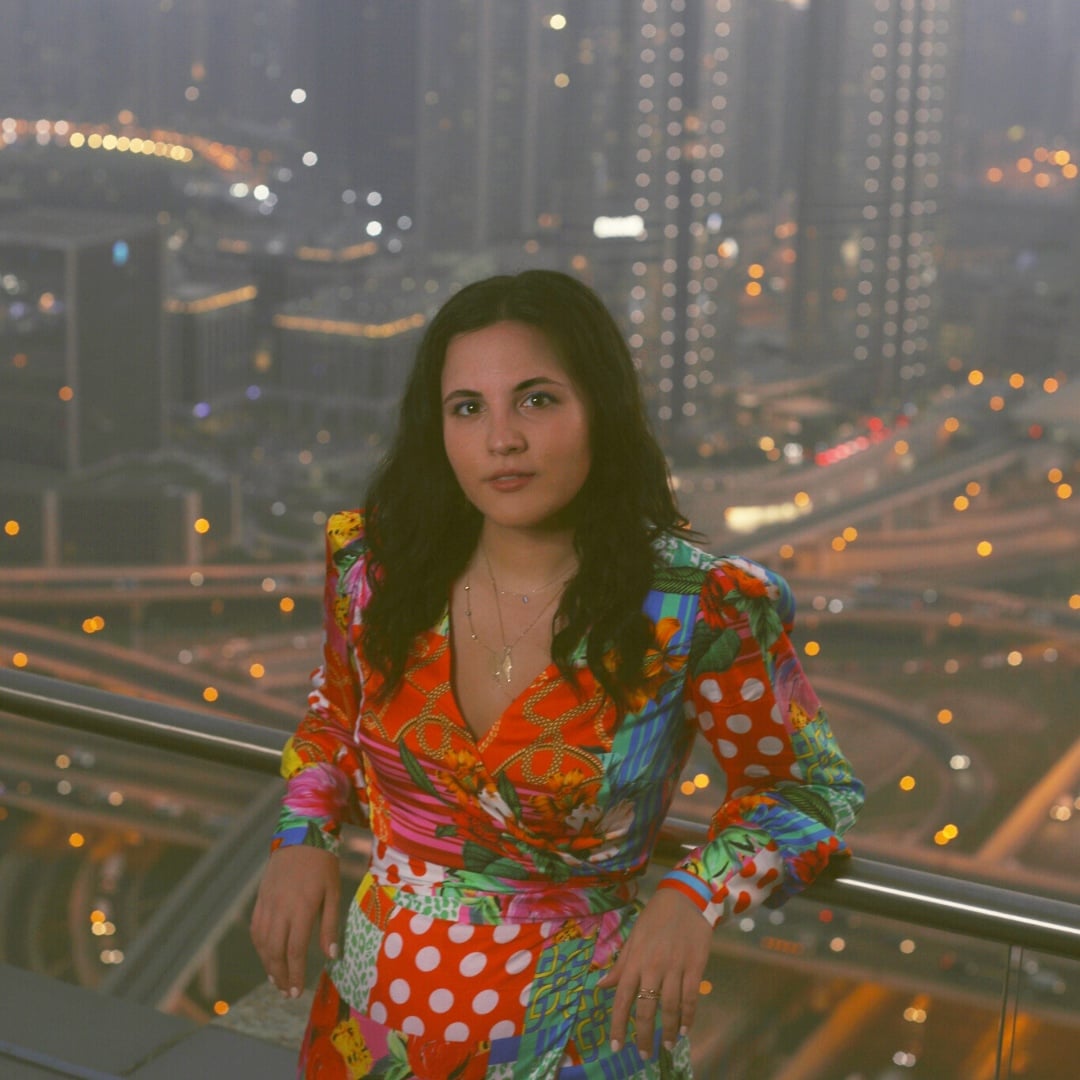
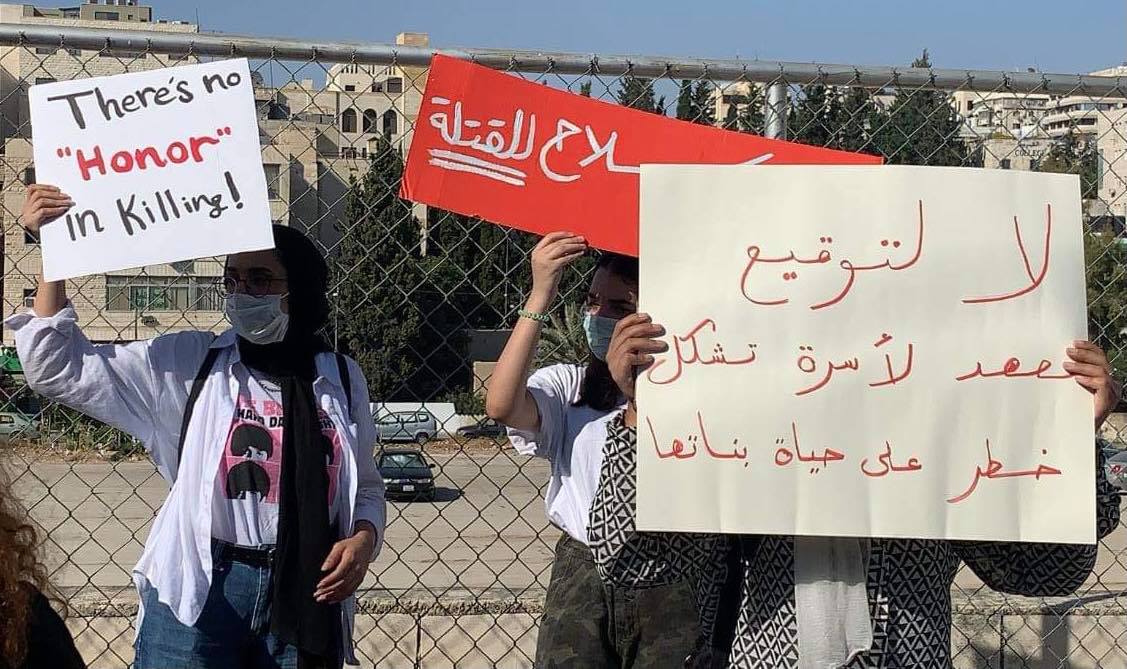
Jude is a lawyer working as a trainee at a Jordanian law firm in Amman. She has organized protests for women’s rights, including the protests for Ahlam in 2020. She discussed with us the ‘honor’ killing of Ranya that took place last month in Amman. Ranya was killed by her abusive father after failing a university class. Jude further discussed the recent ‘honor’ killing of a teenage girl in northeast Syria, which was filmed by her brothers as they murdered her.
In previous years before COVID, there was a passionate response full of shock & rage from both genders regarding ‘honor’ killings. Now we are experiencing a different response due to the pandemic as people are more numb & less willing to talk. There is a serious social media burnout with major issues dying down quickly, as we saw with the Palestinian issue.
Read more
When Palestine trends the news headlines, it is usually due to the occupational war crimes against Palestinians. What is less shown is Palestine as a country in its daily life and the people living, working, and interacting in a diverse community. To highlight this we had a lovely interview with our friend, Mustapha, taking us on a tour in the daily life of a Palestinian.
Jordanian and Syrian culture differ in many aspects. From my perspective, seeking higher education is more common in Jordan, whereas Syrians are more likely to focus on becoming business owners & manufacturers. Although Jordan and Syria border each other, their cuisine & social gatherings are different. The opportunities for women differs in each country with there being more job opportunities available for women in Jordan.
I enjoy hanging out with friends for food or drinks & going hiking in my free time. Since Palestine is a large country there are always more areas for us to explore. There are plenty of cities for visiting to understand & see different cultures within Palestine.
It’s not easy to move between towns & depends on the areas you are trying to visit. For natives, it depends on the type of ID card you have. For Palestinian ID holders, there are many areas that are forbidden to enter. Also, tourists could face some difficulties moving between areas due to the checkpoints between both sides.
Read more
.jpg)
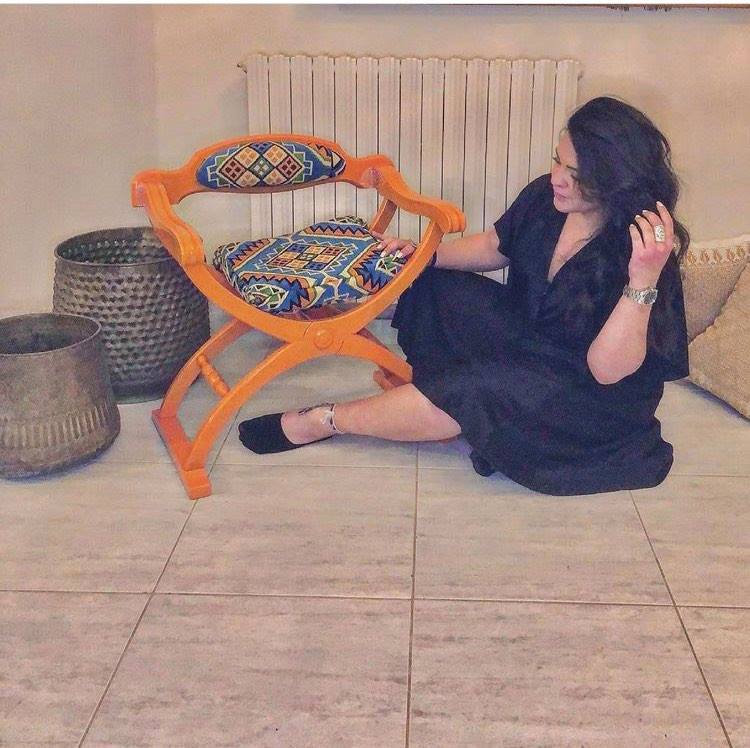
Zain is the only known female carpentress in all of Jordan. She has been doing woodwork & carpentry on and off for the past 10 years. She points out that ‘carpentress’ is a real word, although it is described as a ‘rare’ word according to Wikipedia. She hopes that one day it won’t be rare for a female to be a carpentress. Zain’s passion for wood work has led her to have her own shop in Amman & she hopes that carpentry will become a more accessible sector for women to join in the near future.
During my first year of university, I was working at a craft shop. I was invited by the Brazilian ambassador to his home & saw pieces of furniture that we didn’t have at our shop. There was a bridal chest covering I fell in love with, so I tried creating something similar & sold it to the ambassador. After that, I was introduced to the Duke of Mukhaibeh, who gave me wood that he had collected from the streets. I personally love the smell of wood and its’ texture, so I started making things with the wood he had given me. A few years back, I stopped working as a software engineer and became a full-time carpentress. This is all I do and I love it!
Read more
Rana Husseini is a journalist & human rights defender known for her work in breaking the silence of ‘honor’ killings in Jordan. She has written several books including ‘Murder in the Name of Honor’ & her most recent ‘Years of Struggle: The Women’s Movement in Jordan’.
Watch Now!
Dana Dajani is a Palestinian spoken-word poet, performer, & activist. She is known for her poetry & performances in her series “Love Letters from Palestine”. Her poetry focuses on Palestine history, politics, & environmentalism. She has performed in international festivals including Global Citizen.
Watch Now!
Nadia is a working single mom of a college student, who shared with us her experiences on being half Jordanian & half Syrian while living in Amman. Nadia lived between Jordan and Syria for 30 years then moved to Amman in 2010 before the Syrian war broke out. As a proud Jordanian, she did not do this interview to complain about her country, but rather hopes that her experiences may contribute to improving the treatment of Syrians.
Jordanian and Syrian culture differ in many aspects. From my perspective, seeking higher education is more common in Jordan, whereas Syrians are more likely to focus on becoming business owners & manufacturers. Although Jordan and Syria border each other, their cuisine & social gatherings are different. The opportunities for women differs in each country with there being more job opportunities available for women in Jordan.
Read more
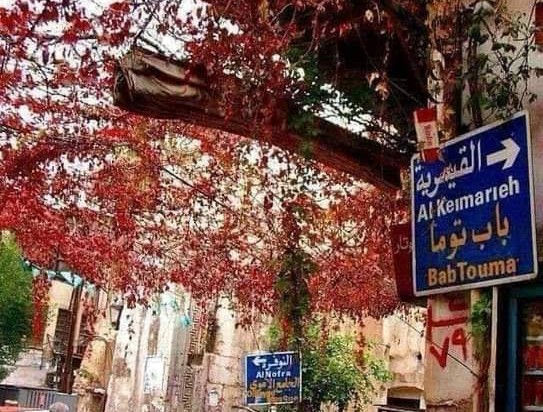
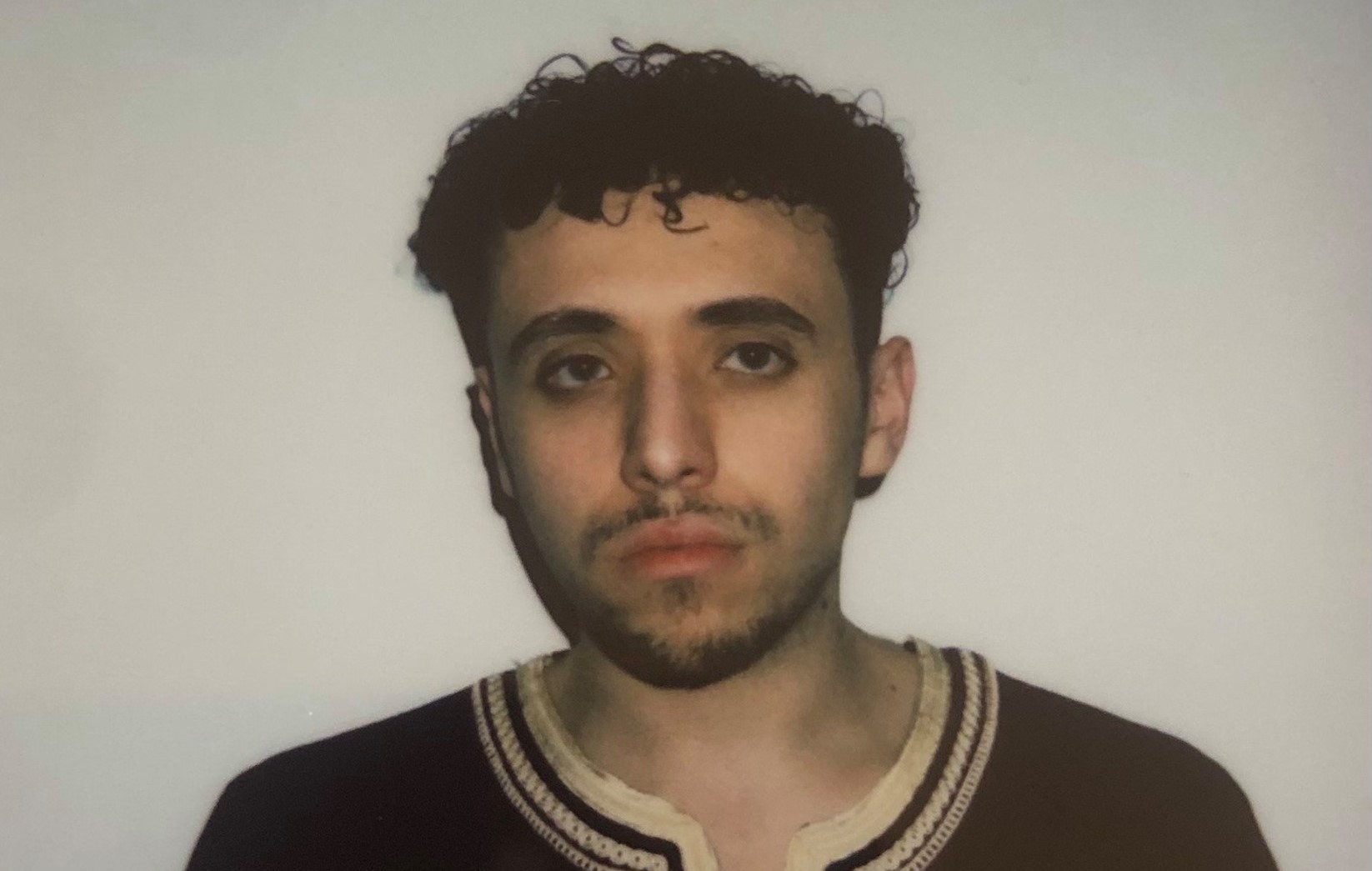
ELIAS is a French Algerian singer that is currently based in Paris with Amazigh roots, but culturally identifies as Arab. He started singing at a young age and went to NYC when he was 19 years old, where he started collaborating with local artists & producers. He has been influenced by his North African roots & shared with us his experiences in the music industry as an Arab man.
When I started making music, I was just trying to make the music that sounded popular at the time. But the more I worked on it, I realized how having a double cultural identity was an advantage in the music scene. I always listened to different styles whether it was traditional tracks (Chaoui & Tuareg music for example), modern tracks (Raï or French), Latin or American music.
Read more
Reem shared her experiences of domestic abuse with us during COVID. There has been a significant increase in cases of violence against women during COVID worldwide, another pandemic that must be addressed.
Yes, there are shocking statistics that 1 out of 3 Egyptian women has experienced physical violence. The problem is not women, but rather that men are raised to be superior to women. Many women in Egypt are beaten by their fathers, brothers, or uncles. This mostly happens in rural areas where people are less educated. Men will use Islam to justify their abuse of women. Abusers will misinterpret the Quran to their advantage when in reality the Quran gives so many privileges to women.
Read more
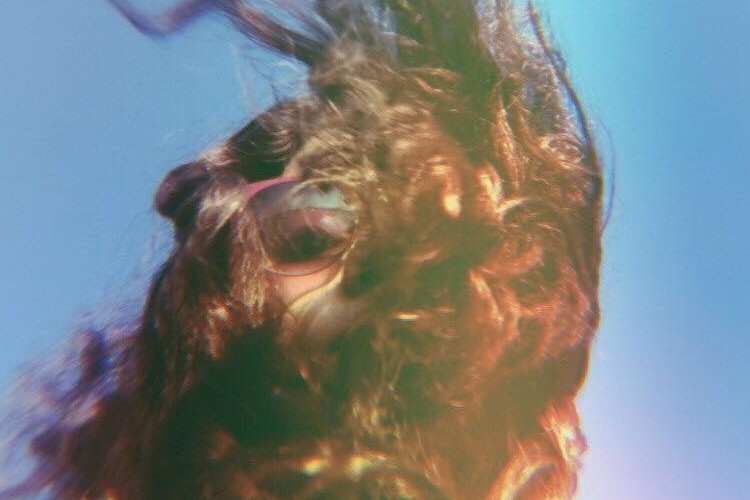
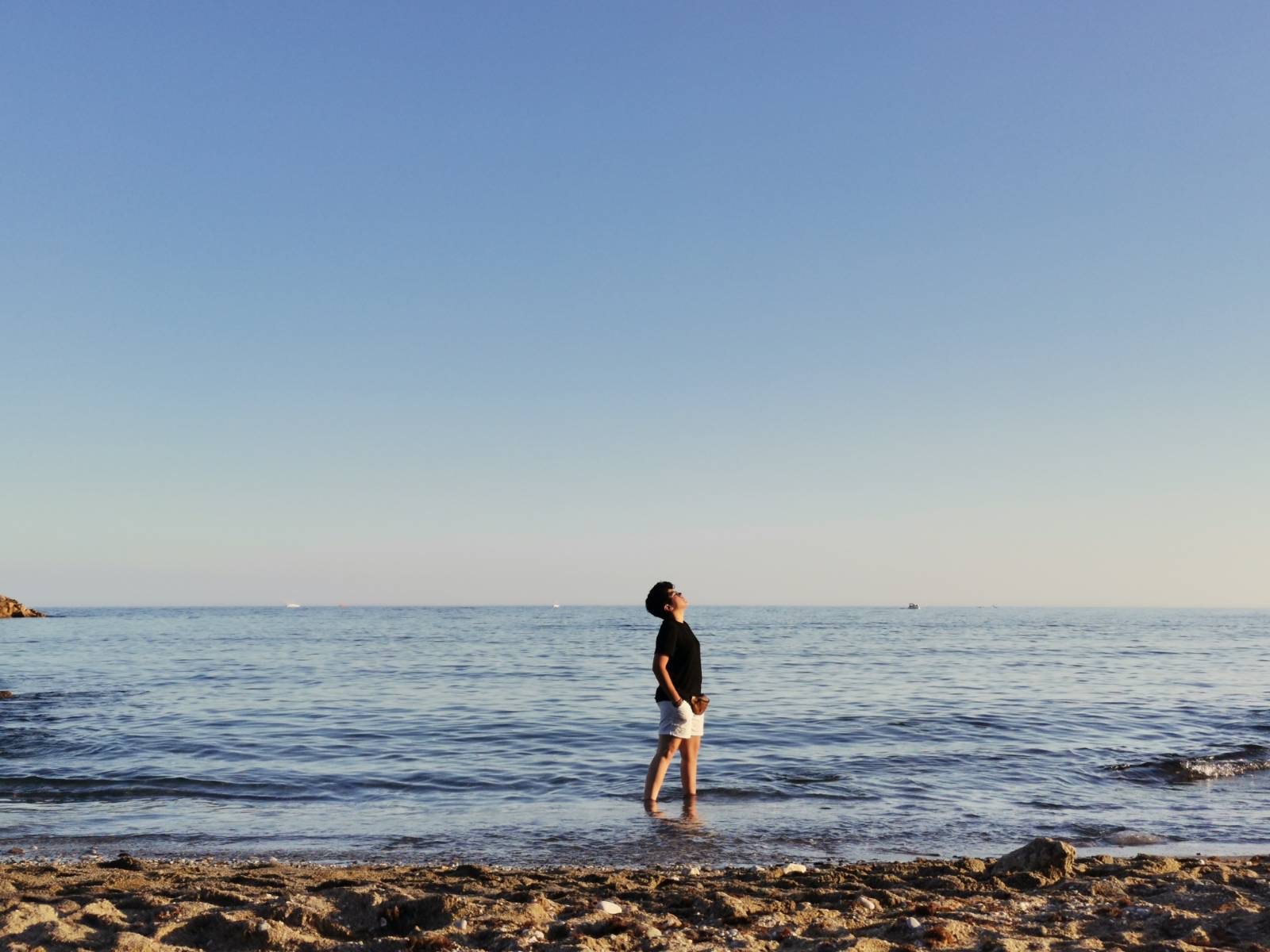
Afnan is a Muslim who's an Engineer and activist for women's rights in the Middle East. Afnan continues to spread a message that LGBTQ+ members MATTER.
One of my first memories as a child was that I tended to like girls more & acted like a tomboy. As the years went by, my preference for girls over boys grew stronger. But I was in denial, refusing the idea of me being gay since all those around me were in heterosexual relationships. Then I realized that happiness doesn’t come by pleasing everyone around me & fitting into what society or religion expects of me.
I am an independent person, but I come from a religious family, so coming out to them is still something that I fear. It hurts me that I cannot be honest about my orientation to my family, especially my mother whom I tell everything. I have to hide the biggest part of me.
Read more
Raya Al-Mufleh recently became one of the first artists to sell a Non-Fungible Token (NFT) in the Middle East. NFTs are a digital art piece that is sold on the internet platforms and can be sold as a drawing, video, song, GIF or photo. Raya explained that NFT allows artists to sell their work worldwide & make a profit off of each sale.
Raya Almufleh started her animation journey at the SAE institute in Amman and later studied in Canada. She has worked in the animation industry for shows on Disney, Nickelodeon, & Netflix. Raya worked as a layout artist for Disney’s Tangled Series, The Lion Guard, and The Guardians of the Galaxy. She has also worked at multiple animation & graphic design companies in Jordan. Currently, she lives in Canada & works as a layout artist at Jam Filled Entertainment for the Nickelodeon show, The Loud House.
Read more
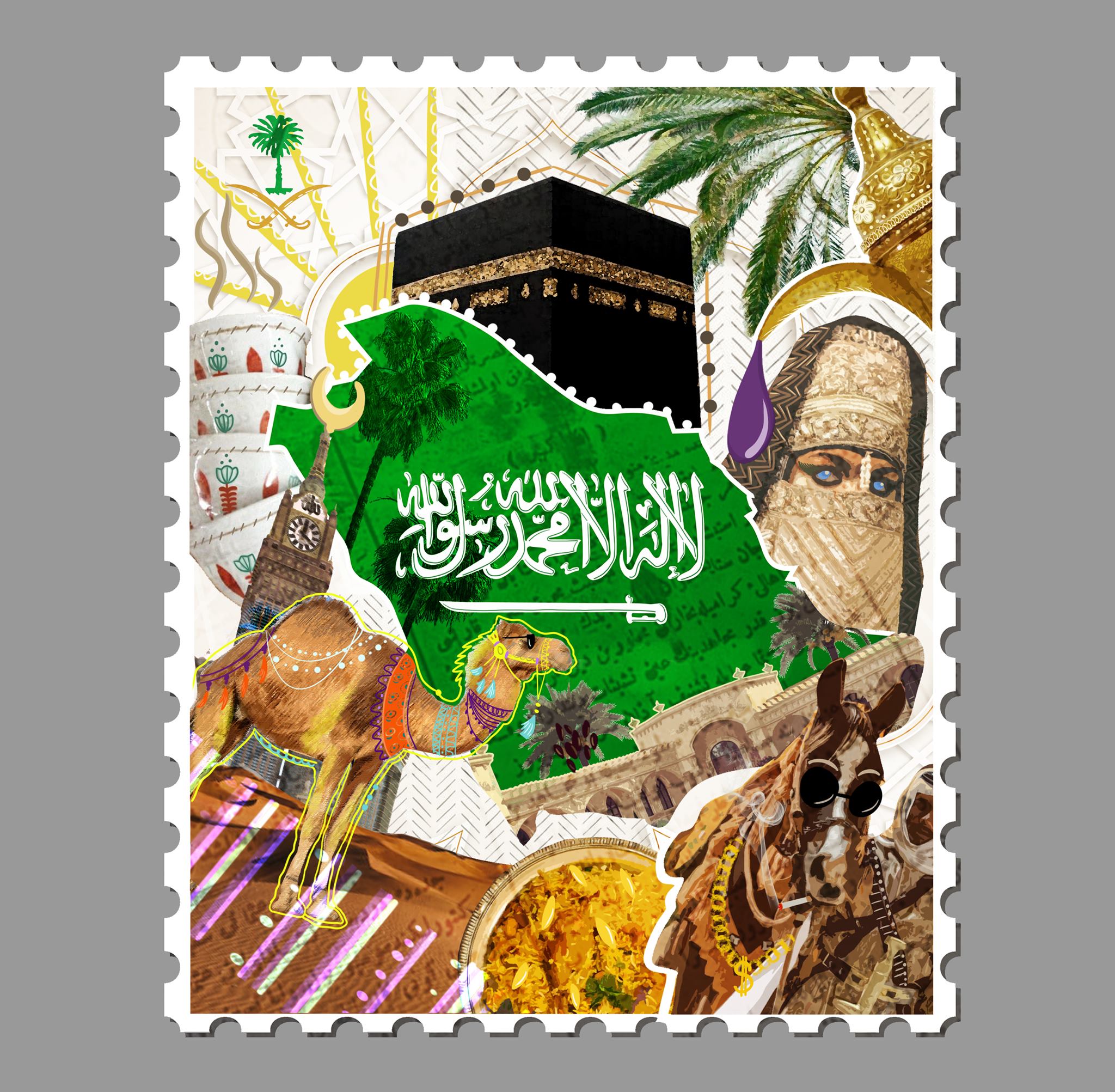
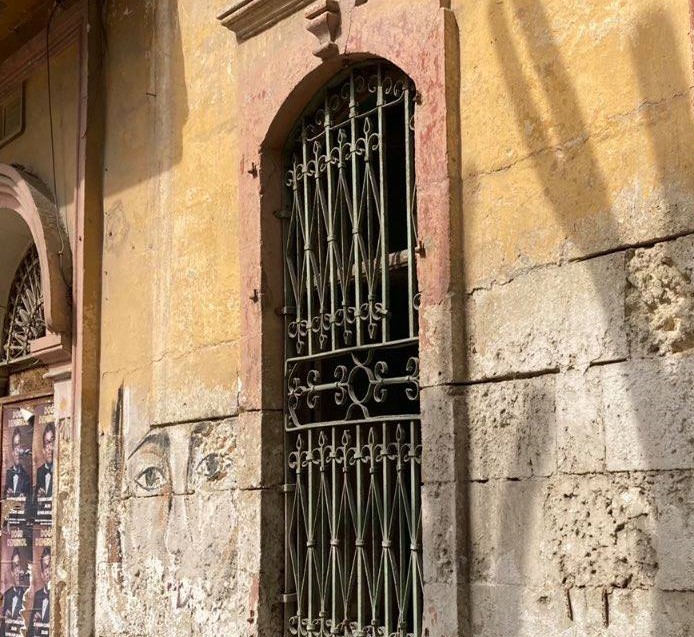
‘Locked’ is an LGBTQ advocate & humanitarian worker originally from Northwest Syria but has resettled in Gaziantep, Turkey. He shared his experiences as a gay man in both Syria & Turkey and the struggles that LGBTQ refugees face upon displacement. "When LGBTQ people flee the war in Syria, they do not flee seeking safety for their sexual orientation. People they know from their native villages & cities also move to Turkey, making it unsafe for LGBTQ to be openly gay, or else their community could come after them. Unfortunately, most LGBTQs in Syria do not know themselves. Many of them live double lives with their families forcing them to get married. This results in unhappy marriages where children also suffer due to their parents fighting.
After fleeing Syria, I felt much safer as an LGBTQ person in Turkey. For instance, the gay dating apps in Turkey have many people on them, but in Syria, they do not. This is because the dating apps are used to catch LGBTQs by radical Islamists. Then they try to blackmail you for being gay; this happened to me. Someone threatened to share one of my photos unless I paid them. So, I decided to publish the photo myself & I received heavy backlash, but I refused to be backed into a corner for being myself.
Read more
Tilila is the founder of Amazing Amazigh which aims in sharing about Amazigh culture, history & social rights. The Imazighen are the original people and tribes of the North Africa region that continue to preserve their heritage. Tilila shared with us about her Amazigh identity and how it has motivated her to spread awareness about the Imazighen to the international community.
"Disclaimer: These are my personal views. I do not pretend to represent the whole Amazigh community, which is highly diverse and would have differing opinions from mine."
I am Tachelhit, which means I am originally from Southern Morocco in a region called Souss, located in the Anti-Atlas Mountains. The predominant Amazigh group is the Ichelhin, speaking Tachelhit dialect. In a broader sense, I am Amazigh, which is a nation that includes other groups/tribes like Rifians (Northern Morocco), Kabyles (Northern Algeria), Chaouis (Eastern Algeria), Kel Tamasheq (Touaregs), & more.
Read more
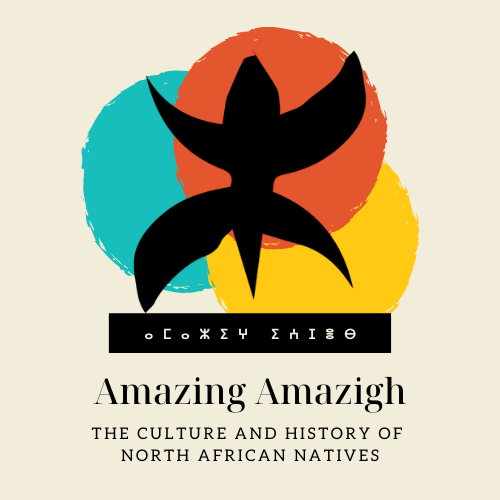
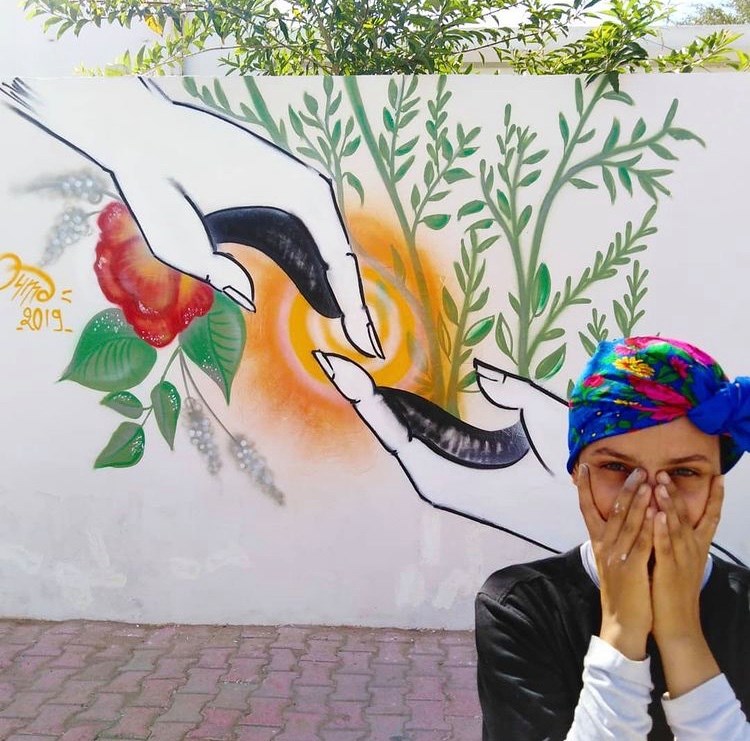
Ouma is a Tunisian street artist and sells artistic products through OumaStore. She attended art school in Sfax and pursued graffiti to show the world her mad skills. Check out our interview with her!
Under Ben Ali, street art could only be done by football fans showcasing their favorite teams. During the revolution, artists used tags on walls to express their political opinions. That is why you’ll find many tags from 2011-2012 that are about politics. After the revolution, graffiti artists came together and organizations began sponsoring street artists, such as OpenArt. The graffiti festival started in 2012 and invited artists from Tunisia, France, and other countries.
But it was not only street artists that grew after the revolution. After getting our freedom, all Tunisian artists exploded in the first five years and now, we are the living history of that era. It has been 10 years since I started graffiti and today, myself & other artists are creating what future generations will build upon. Yet, my generation of artists haven’t sat back to acknowledge that we are creating our history. It is amazing for me to be a part of this.
Read more
In 2009, Rana Madanat became one of the first female Jordanian Hip Hop dancers that pursued dance as a career. She has worked at Tempo Dance Academy as a dancer, instructor, and choreographer where she teaches various dance courses & organizes dance performances in Amman.
Watch Now!
Sardine is a signature Jordanian ‘Wall Illustrator’ of Armenian descent living in Amman. His street art can be seen throughout the city center, Jabal Weibdeh, and Jabal Amman. He has helped define Jordanian street art by pushing creative boundaries. He started working with graffiti & illustration after 10 years of professionally working in journalism.
Watch Now!
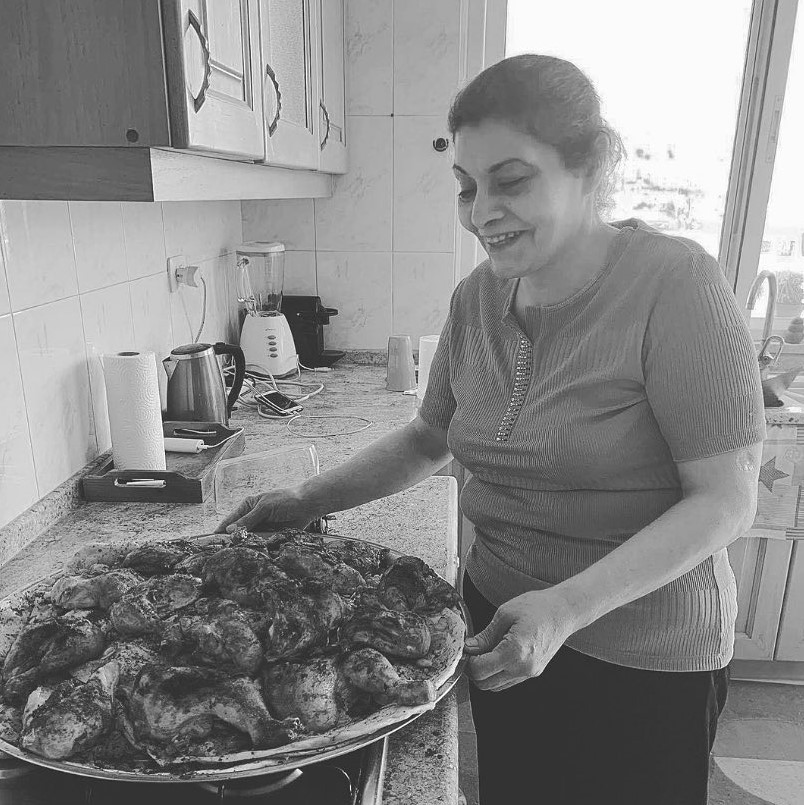
Musakhan is a traditional Palestinian dish made with chicken, taboon flatbread, sumac, caramelized onions, roasted pine nuts, and served with soup/yogurt on the side. Musakhan is usually eaten by hand and is a popular dish throughout the Levant region.
Legendary mother and businesswoman, Jalwa Kilani, cooked for us homemade Musakhan. Jalwa is originally from Nablus, Palestine, but has lived in Amman for the past 30 years. She moved to Kuwait in 1977 and then to Jordan in 1991 due to the Gulf War.
She explained to us that Palestine is very famous for its’ olive oil and Palestinians cook Musakhan often during the olive season. Musakhan is a popular Palestinian dish since it was common for households to raise chickens, grow onions, and store olive oil in their homes. Therefore, Jalwa said that making Musakhan is an easy dish to make at home since they already have the fresh ingredients.
Jalwa’s Musakhan was delicious and the love that she has for sharing food with her family and friends showed in her cooking. As with so many other Arab dishes, make sure to save time for a nap after eating Musakhan!
Bast Space is a new cat cafe located in Weibdeh. The owner, Jad, sat with us to explain that he wanted to open a social enterprise rather than another shelter to rescue cats off the streets. The location of the cafe can be tricky to find since there is no sign, which is purposefully done to protect the cats interacting with people who enter the space coincidentally. Bast Space can be found on Google Maps and by calling the number directly for directions.
Jad opened Bast Space to be an informative space for discussions on the history of cat domestication, why people should adopt more cats etc. Jad is a veterinarian that neuters, vaccinates, and provides medication for cats in need.
Cat cafes are becoming popular social spaces in many countries and allow for homeless cats to live in a safe space and interact with their future owners. There are currently 10 cats at Bast Space that are all up for adoption, but Jad’s goal is to rescue 20 cats at a time.
Cats are a part of the identity of many cities in the Middle East, including Amman where cats are easily visible on every street. In some countries, the municipality and citizens understand that cats are a significant part of their cities' culture. Cats are better-taken care of in cities like Istanbul, whereas in Amman, there is less public tolerance and government initiatives for street cats. Jad believes that opening places like Bast Space can change this.
Even if you are not able to adopt a cat, this is a great way to be a part of Amman culture, enjoy your favorite drink, and give our furry friends the love & attention they deserve.
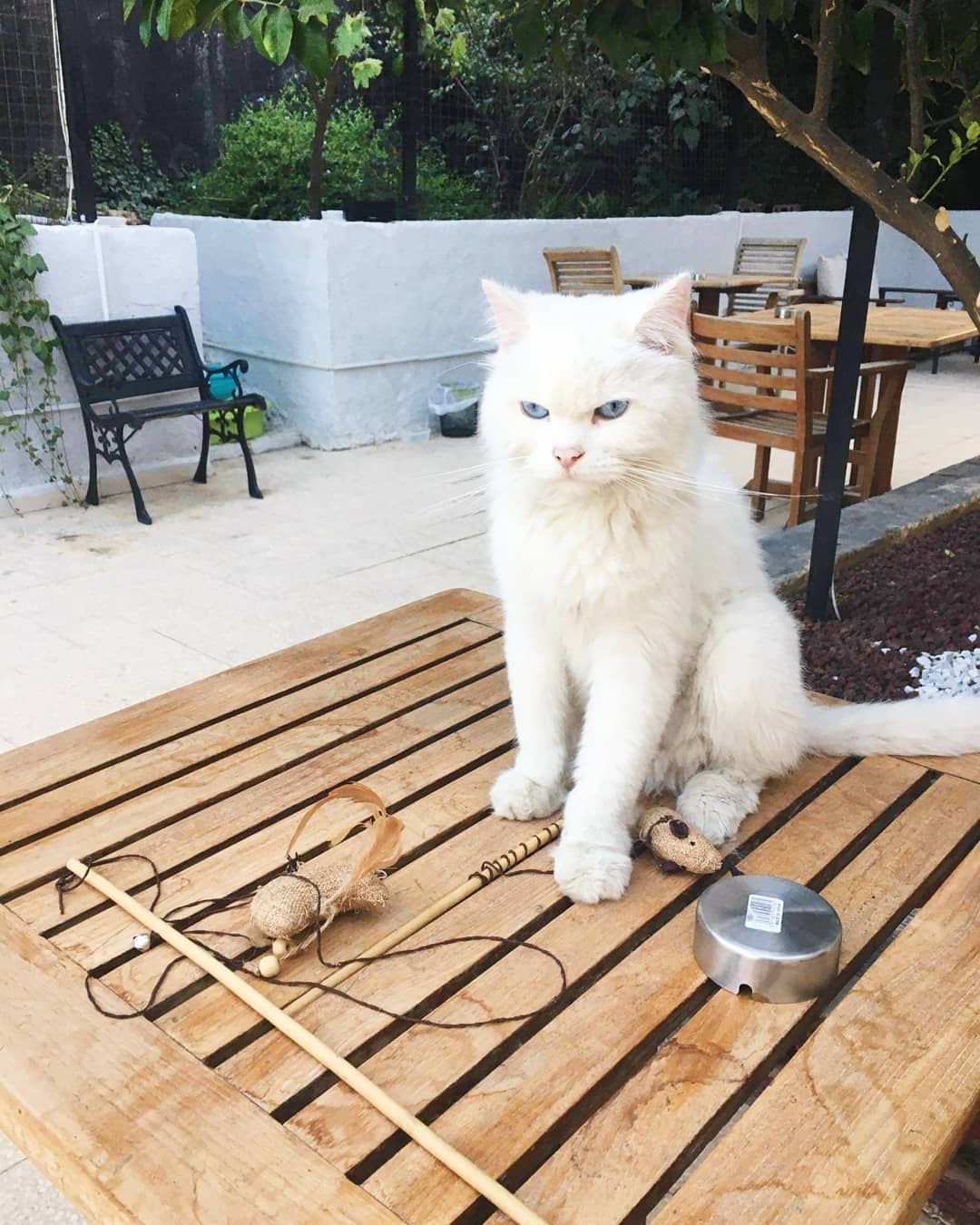
With so much international news covering the events taking place in Lebanon after last week’s explosion, we interviewed a Lebanese citizen living outside of Beirut to better understand the current situation happening on the ground.
Joey is a Lebanese Civil Engineer that has worked in the Bay Area for the past four years. He previously lived in Lebanon for 22 years and has been working remotely outside Beirut since July 1, 2020.
People are still grappling with the situation regarding the explosion and many people, including myself, have gone downtown to help clean up the damage. There are families that have experienced symptoms such as stomach issues and vomiting from the nitrate gases that existed in the air. But from my perspective, it has not been dangerous to go downtown since I, nor other volunteers experienced any symptoms. After the explosion, the immediate reaction of the people was to help one another, but now anger has led many to protest against the government.
There have been spontaneous, unorganized protests happening in the past two days. Most of the protesters are non-Hezbollah supporters and support other political movements. There are currently people being treated in hospitals after being shot by police with rubber bullets during the protests that were aimed towards the torso and face. Unfortunately, this is not the first protest that this has happened. This is a dirty way of dealing with the protestors which only escalates violence.
Lebanese citizens are participating in these large protests to show that many people are unsatisfied with the current situation and are demanding early elections from their government in order to elect a new Prime Minister and parliament. However, even if early elections were to take place, I believe there would not be drastic changes within the government for years since many people will not change their ideologies, allowing politicians to feel as though they are not to blame for the explosion and rather place blame on other political parties.
Read more
We chatted with American healthcare worker Payal to discuss COVID, masks, and healthcare in the U.S. during the pandemic. It’s abundantly clear that the U.S. has handled COVID-19 very poorly. As we have been watching the U.S. from Jordan for the past six months, we were eager to hear from someone on the front lines there.
Payal is a Medical Assistant at a health clinic in Fairfax, Virginia, USA. She has been working tirelessly to serve patients during the outbreak of COVID-19 in the United States.
“After COVID-19 hit in March, my work as a Medical Assistant at the clinic became more hectic and I received panicked phone calls from patients at the clinic. Initially, we were receiving patients at our clinic but would only hold a maximum capacity of three patients at a time. But in April, our clinic completely shut down and we transitioned to telemedicine. Doctors in the US are mostly from older generations and are not technologically savvy, leaving this older generation of doctors to be ill-prepared when it comes to telemedicine.”
I am only a Medical Assistant, but since COVID-19, I have had to handle patient finances with insurance companies since many will not cover the cost of COVID-19 treatment. American health care workers across the country have to fill in the gaps within hospitals and clinics due to shortages of staff and resources. For example, doctors not trained in emergency medicine have stepped in to treat COVID-19 patients in emergency settings.
Hospitals need more PPEs and are currently running low on medical supplies. During the first wave
Read more
Sondos | Gender & Sexuality Activist
Jordanians are demanding justice in the wake of the 'honor killing' of 30-year-old Ahlam, a Jordanian woman who was brutally murdered by her father in Amman. Her screams for help were heard by neighbors as she ran to the streets covered in blood, with her father chasing her and eventually beating her to death with a brick.
‘Honor killings’ have existed in Jordan for ages and the numbers continue to increase
Read more
Maaroof is a Palestinian factory worker living in Shiekh Danoun, a village near Nahariya, Israel. He shared with us his perspective on Israel’s West Bank annexation plans.
“Actually, we don’t know what the Israelis want, but from my observations, they want to weaken the Arab Government. Palestinians makeup around 2 million citizens in Israel and occupied territories, meaning we are powerful. The locations that they want to annex is where 20% of these 2 million Palestinians live. That means we would be less powerful and threatening to the Israelis. There is a high rate of violence amongst Palestinians in these areas, so annexation would lower Israeli resident’s exposure to violence. In addition, the areas that they want to take is a strategic location since Palestinians use this land for agriculture. The Palestinian side disagrees with annexation and is united against Israel. Arabs
Read more